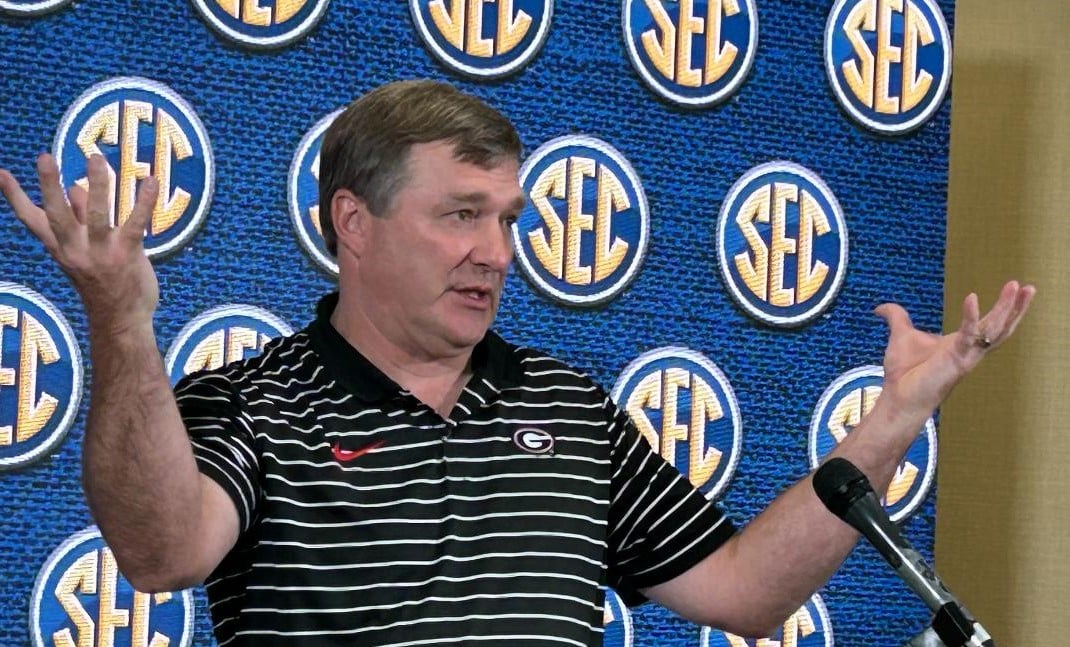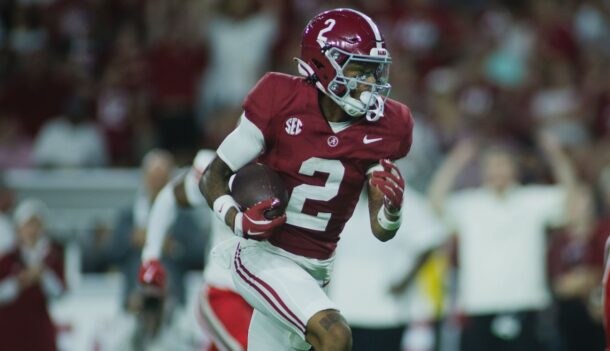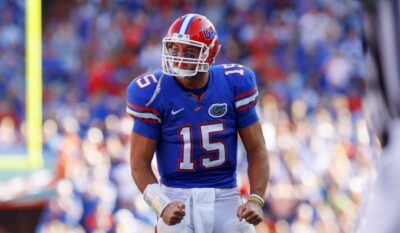
Hayes: Kirby Smart absolutely can fix Georgia’s dangerous speeding problem. So why won’t he?
By Matt Hayes
Published:
This isn’t difficult. It doesn’t take a hastily-called press conference with university officials, and bold, declarative statements that really mean nothing.
It’s takes 1 simple, unquestionable and unambiguous message.
The next player arrested for racing or reckless driving is kicked off the team.
That’s it. End of story.
Then watch how quickly the Georgia players stop driving 90 mph in a 45.
Watch how quickly this offseason run of Georgia players speeding, racing and recklessly driving, comes to a quick and succinct halt.
“I don’t know if we can ever eradicate speeding,” Smart said Tuesday during a rare mid-summer press conference of select media to — for the first time this offseason — speak at length about problems within the best program in college football. “But I’m going to damn sure try.”
You would think after a Georgia player and staffer were killed in January while speeding and recklessly racing, that would’ve been the moment Smart planted the flag and declared that the next person arrested for racing or reckless driving is off the team.
But there was starting wide receiver Marcus Rosemy-Jacksaint last week, pleading guilty in an Athens, Ga., court to driving 90 mph in a 45 mph zone — 2 months after he was cited twice in Florida for speeding 60 in a 40, and 71 in a 40.
That same day, 5-star freshman recruit Samuel M’Pemba was ticketed for driving 88 mph in a 55 mph zone.
The Atlanta Journal-Constitution reported that starting running back Kendall Milton has been ticketed 5 times since 2022, including 92 in a 64. All-American safety Javon Bullard has been ticketed 3 times, 1 that came with a DUI charge in 2022 that eventually earned a 1-game suspension.
Redshirt freshman defensive lineman Christen Miller was ticketed in March for 95 in a 65.
ESPN reported in June that Georgia players were involved in at least 10 reported traffic-related moving violations since the fatal crash in January that killed guard Devin Willock and staffer Chandler LeCroy.
“High speeds, according to Georgia State Patrol, who talked to our team, is where you get bigger accidents,” Smart said. “That’s the biggest concern we have.”
The biggest concern should be another fatality, another life lost because of speeding and reckless driving. That and Georgia has been named in a $40 million wrongful death lawsuit by Willock’s father and his estate.
Again, this isn’t difficult.
It’s a simple if/then consequence for players. If you’re racing and/or reckless driving, then you’re no longer on the team.
The very last thing you do is sit at table during a press conference, flanked by the athletic director and deputy athletic director, and make excuses for players and their dangerous driving habits.
They’re young, Smart said. Some arrive at Georgia without a driver’s license. And the mother of all excuses: big, bad NIL.
Smart actually made the case that players flush with a new money — money that many haven’t seen in their lifetime — are buying fast cars.
And this is a problem because why?
That same NIL money is the reason Georgia recruits at the elite of the sports and stocks its roster with the best high school players — and transfer portal players — in the nation. You can’t embrace it in 1 breath, and revile it in another.
Who cares if players have fast, new cars? Let them drive around in those fancy cars all over Athens. That’s not the problem.
The problem is speeding and racing and reckless driving — and the lack of consequences they bring. How is this even still in question?
The days of running stadium steps, and eating franks and beans instead of steak and potatoes are long gone. No more chances, no more avoiding in the inevitable.
How does Smart arrive at a press conference and say, “We got issues with traffic citations and speeding issues that we have to improve upon.”
Improve? Two people died from those “issues” that need improvement, including a teammate who, by all accounts, was beloved in the locker room.
Smart said he has to, “make tough decisions on a case by case basis.”
You know what he didn’t say? What specific steps he has taken to curtail the problem, which has continued to grow with each month this offseason.
In-house punishment clearly hasn’t worked. A public declaration of consequences — an undeniable and unambiguous flag in the ground — is the only thing that’s left.
The next player arrested for racing or reckless driving is kicked off the team. Smart wouldn’t just be taking a stand and regaining control of his program.
He may just save a future life in the process.
Matt Hayes is a national college football writer for Saturday Down South. You can hear him daily from 12-3 p.m. on 1010XL in Jacksonville. Follow on Twitter @MattHayesCFB







